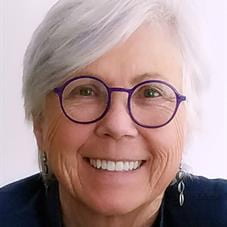Degree: 2016, MALS
Job Title: Retired, Higher Education Publishing
Courtesy of Google and a feature article in the News Journal, I first learned of the MALS program a few years before I expected to retire from a career in higher educational publishing. My retirement plan was thus decided. As one who has always embraced rather than resisted change, I envisioned MALS as a stellar opportunity to transition from a protracted, all-consuming work-work-work existence to a new, stimulating life phase. MALS did not disappoint.
I’ve always been devoted to learning. On my first ever day of formal schooling, I arose much earlier than required and danced about the still dark house in excited anticipation. Unlike many of my peers, in the years that followed, I was never overjoyed as the school year ended. MALS eliminated some of the less savory aspects of my undergrad experience – cramming for exams, peer competitiveness, pressure to excel, requirements that held little interest, and those easy-to-get-lost-in oversized classrooms. Instead I found that MALS offered appealing topics, committed and learned faculty with superb teaching expertise, and fellow students who celebrated the different paths that brought us together to share with good fellowship an environment of cooperative learning and yes, inspiration.
Because I had not been a student for many decades, I approached the initial courses with some trepidation. Would I be able to hold my own? I would ultimately discover that an abundance of life experience afforded me a broader context within which to incorporate new learning. In those first courses, however, I realized that my recall abilities had altered. Eager to dive in, I would read assignments the day after class and take copious notes, too. Six days later, when the professor would open class with a straightforward question about the assigned reading, I would draw a complete blank, flip frantically through my notes, and panic. My ability to retain information apparently was not what it once had been. So I adapted, finding that reading closer to the next session made a big difference. Though I wasn’t daunted by having to write papers, I spent the preparation time in a state of minor anxiety until I could do enough research (a process I cherished) to develop a “hook,” a way into the paper that worked for me. Thus, I came to accept that I do not learn in the same way or at the same rate as I did as a younger student. Nevertheless, learn I did, with delight!
I was often asked why I was, at this life stage, pursuing an advanced degree. I was puzzled when my “because I love to learn” response did not seem to satisfy. The flexibility of the MALS program allowed me a delicious deep dive into topics (film, history, aging, cancer, memoir, death/dying, philosophy) that had always drawn me but for which I’d had too little time to explore fully. As my chosen transition into retirement, MALS has bestowed a most enriching intellectual and personal experience.

